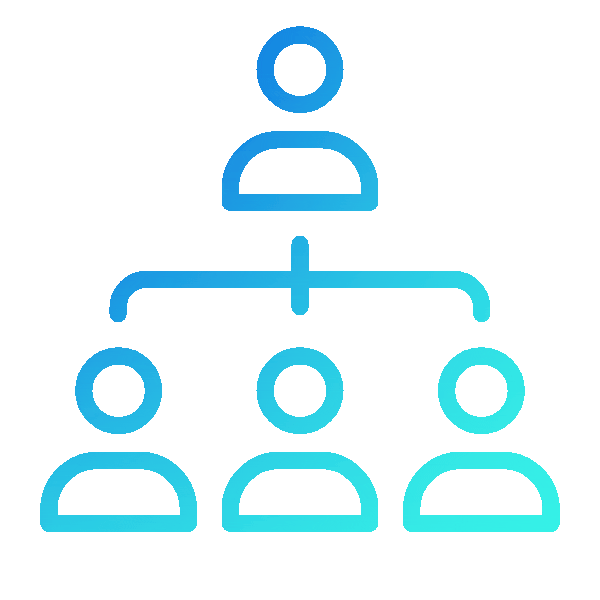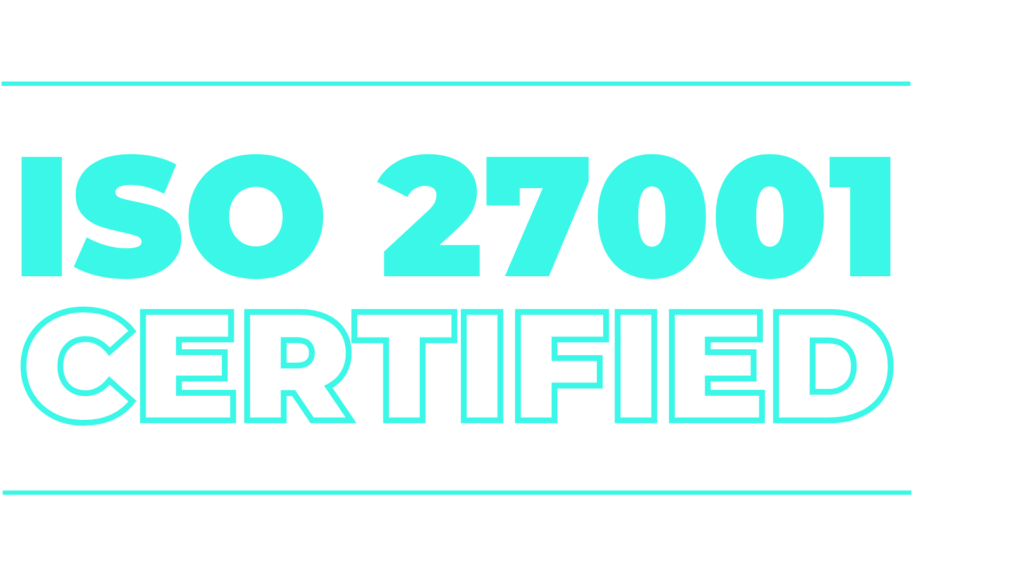In today’s digital landscape, building innovative applications is no longer a luxury; it’s a necessity. However, finding the right and dedicated development team is more important due to the increase in outsourcing providers. The global outsourcing market stands at a whopping $92.5 billion, with the U.S. contributing $62 billion. More than two-thirds of businesses in the United States choose to outsource their development tasks. Similarly, in Britain, the desire to outsource is strong, with over 70% of business professionals expressing an interest in outsourcing.
Almost half of them, specifically 48%, have already taken steps to outsource various aspects of their operations. The outsourcing market is projected to grow steadily at a 4% compound annual growth rate from 2021 to 2025. A remarkable 78% of businesses worldwide hold a positive view of their outsourcing partners. Approximately 300K jobs in the U.S. are outsourced annually.
Cost-saving is the primary motivation for outsourcing, as noted by 59% of businesses. Information technology leads the outsourcing trend, with 13.6% of IT budgets allocated to outsourced tasks and 37% of IT tasks being outsourced. Nearly a quarter (24%) of small businesses engage in outsourcing to enhance efficiency. A dedicated development team is a game-changer for businesses seeking to supercharge their development process with specialized talent and streamlined workflow.
What is a Dedicated Development Team?
A dedicated development team involves developers working closely with companies to achieve mutually agreed-upon goals and deliverables through an ongoing partnership. Dedicated developers work as integral parts of the in-house development teams, offering seamless integration and maximum alignment in how they support clients.
Beyond a Hired Group: The Power of a Dedicated Development Team
A dedicated development team goes beyond just being a group of hired developers in the usual sense. It’s a specialized unit strategized specifically for your project’s success, acting more like a long-term partner than just another service provider. Here’s a deeper dive into the aspects that elevate them beyond “just a group”:
1. Hand-picked Squad: Tailored Expertise for Your Vision
Imagine an orchestra. Each instrument plays a crucial role, but a random collection wouldn’t create a masterpiece. Similarly, a dedicated team is not simply assembled; it’s curated to match your project’s unique needs. You can choose the ideal blend of experts, from skilled developers fluent in specific technologies to experienced testers with a keen eye for detail. These individuals become the perfect pieces in your development puzzle, ensuring every aspect of SDLC is addressed with the right expertise.
2. Laser Focus: Unwavering Commitment to Your Project
Unlike freelance developers juggling multiple projects or internal teams with diverse responsibilities, a dedicated team has laser focus. Their sole mission is to champion your project’s success. They become intimately familiar with your goals, challenges, and requirements, allowing them to dedicate their full bandwidth and intellectual capacity towards delivering exceptional results. This unwavering commitment ensures your project remains at the forefront, receiving continuous attention and progress.
3. Extended Engagement: From Ideation to Launch and Beyond
As we’ve mentioned, a dedicated development team is not a one-time solution; it’s a long-term partnership. They journey with you throughout the entire development lifecycle, from the initial spark of an idea to the final launch and beyond. This means they can be involved in:
- Defining concepts and refining your vision during the ideation stage.
- Building a solid foundation through efficient development practices.
- Rigorously testing the product for optimal functionality and user experience.
- Deploying the product and ensuring a smooth launch.
- Providing ongoing maintenance and support to address future needs and enhancements.
This long-term involvement fosters deeper understanding, stronger collaboration, and continuity throughout the project, ultimately leading to a more robust and successful outcome.
4. Partnership, not Service: Collaborative Effort for Mutual Success
The relationship with a dedicated team goes beyond simply receiving a service. It’s a collaborative effort built on open communication, shared vision, and mutual trust. For your dedicated development team, you are not just a client, but a project they identify with and feel responsibility and ownership towards. You can share your ideas, raise concerns, and receive transparent updates, creating a partnership focused on achieving a common goal: your project’s success.
5. Agility and Flexibility: Adapting to the Evolving Landscape
The digital world is constantly evolving, and unforeseen challenges or changes in requirements are almost inevitable. A dedicated team thrives in this dynamic environment. Their agility and flexibility allow them to seamlessly adapt to any new information, adjust their approach, and ensure the project stays on track. Whether it’s implementing new technologies, addressing market shifts, or adapting to evolving priorities, the team’s ability to adjust ensures your project remains relevant and successful in the long run.
By understanding these key aspects, you can appreciate the true value of a dedicated development team. It’s not just a group of hired developers but a specialized force, a long-term partner, and a collaborative driving force propelling your project toward success.
How to Select and Hire a Dedicated Software Development Team
Choosing the right partner for your dedicated software development team is crucial. Here’s a step-by-step guide to help you through the process:
Step 1: Define Your Criteria
Before you begin your search, determine what criteria are essential for your project. Consider factors like external business knowledge, cultural understanding, client references, relevant project experience, technology expertise and locations, etc..
Step 2: Assess Potential Partners
Evaluate software companies based on your criteria. Look for firms with a track record of success, positive client testimonials, and relevant project portfolios. Consider cultural fit, preferred work pace, and business operation methods to ensure compatibility.
Are they working remotely and is that what you want? How are their developers’ daily/weekly working hours and time-off allowances? Are they operating on a 5-day business week like yourself? Such minor details can lead to great operational obstacles down the road.
Step 3: Create a Vendor Pool
Identify a pool of potential vendors that align with your project requirements. Compare their experiences, references, and capabilities against your needs to narrow down your options.
Step 4: Match Needs with Expertise
Carefully match your project needs with each vendor’s expertise and experience. Some vendors may excel in specific areas, while others may not be as well-suited for your requirements. Take the time to assess and compare until you find the best fit.
Don’t hesitate to ask for more information when it comes to similar experiences and drill down on how they can use that expertise to provide additional value to your project or product.
It is also important to consider the level of flexibility and willingness to accommodate your needs. Technology is ever evolving and finding a partner willing to incorporate your needs beyond their current offering means they will be open to your evolving agenda in the future.
Step 5: Finalize Your Choice
After a thorough evaluation, select your preferred software partner. Confirm project details and ensure clear communication regarding objectives, timelines, and expectations. Provide any necessary information or specifications to facilitate team selection and project planning.
Step 6: Define Project Details & Onboard Developers
Once you’ve chosen your partner, finalize the details of your project. Clearly outline project goals, requirements, and deliverables to guide the development team. The right partner should be able to guide you through this process with advice on how to get you to point B in the best way possible.
A word of caution; if your dedicated developers are expected to operate as internal team members, they need the same onboarding every in-house team member gets. Providing a comprehensive project onboarding will help your new team join the development process efficiently.
By following these steps, you can streamline the process of hiring a dedicated software development team and ensure a successful partnership for your project.
Decoding the Framework: How Does a Dedicated Project Team Structure Look Like?
A dedicated project team structure involves assembling a team of specialists focused exclusively on one specific project from start to finish. Usually, this team is remote and works under the umbrella of a service provider company that manages the recruitment, employment, and infrastructure for the specialists. This contrasts with traditional functional teams, where members handle multiple projects simultaneously.
Here’s a breakdown of the key elements of a dedicated project team structure:
Core Team Members:
- Project Manager: Oversees the entire project lifecycle, ensuring it stays on track, within budget, and meets deadlines. In modern agile teams, project manager responsibilities may be carried out by Scrum Masters, who are active members of the development team.
- Technical Experts: Depending on the project, this may include backend and frontend developers, designers, quality assurance specialists (QA), DevOps or Data engineers, etc.
- Business Analyst (BA): Bridges the gap between the technical team and stakeholders, translating business needs into actionable requirements.
- Additional Specialists: Depending on project complexity, the team might expand to include writers, content creators, marketing specialists, security experts, etc.
Additional Considerations:
- Team Size: The size of the team can vary based on project complexity and scope. Smaller projects may have a core team of 1-5 members, while larger ventures may involve 20+ individuals.
- Scalability: The team can be scaled up or down as needed during the project lifecycle to meet changing requirements and resource needs.
- Communication and Collaboration: Clear communication channels and collaborative tools are crucial to foster effective teamwork and project success, especially in a remote setting.
Overall, a dedicated project team structure can be a valuable approach for various projects, offering potential benefits in terms of focus, efficiency, and cost-effectiveness. Remember, it’s important to weigh the pros and cons and ensure it aligns with your specific project needs and resources.
Why Choose a Dedicated Development Team? Exploring the Benefits
A dedicated development team functions as an extension of your own team, significantly empowering you in multiple ways:
1. Accelerated Development: Hit the Ground Running at Warp Speed
Building an in-house team requires extensive vetting, onboarding, and training. A dedicated team eliminates this time-consuming process, allowing you to hit the ground running right from the start. You benefit from pre-assembled expertise: a team of individuals already familiar with relevant technologies, development methodologies, and best practices. This immediate access to a qualified workforce reduces the time to development, bringing your project to market faster and securing a crucial first-mover advantage.
2. Beyond Cost-Efficiency: Value Optimization through Global Talent Pool
While cost savings are often a significant advantage, the true benefit of a dedicated team extends beyond pure financial gain. You gain access to a global talent pool, allowing you to tap into a wider range of expertise and experience that may not be readily available in your local market. This broader talent reach opens doors to individuals with specific skillsets, niche knowledge, and diverse perspectives, ultimately leading to a higher quality and more innovative product.
3. Enhanced Quality and Expertise: Unveiling Hidden Gems
Dedicated teams are formed by strategically combining individual strengths to create a synergistic force. You benefit from the collective knowledge and experience of the team, ensuring every aspect of your project receives focused attention from qualified individuals. This collaborative approach allows for peer review, knowledge sharing, and innovative problem-solving, ultimately leading to a higher quality product with fewer errors and a more refined user experience.
4. Gaining Control and Transparency: Beyond the Black Box
Many external development solutions can feel like a “black box,” leaving you with limited visibility into the project’s progress. A dedicated team fosters open communication and transparency throughout the development process. You gain regular updates, participate in planning meetings, and have direct access to team members, allowing you to stay informed, raise concerns, and provide valuable feedback. This increased control and transparency not only builds trust but also allows you to make informed decisions and actively steer the project’s direction.
5. Unforeseen Benefits: Unlocking Hidden Value
Beyond these core benefits, dedicated teams can offer unique intangible advantages. They can become a valuable sounding board for your ideas, offering objective feedback and fresh perspectives. Their experience can help you navigate unexpected challenges and identify potential opportunities. Additionally, the long-term partnership fosters a deeper understanding of your business goals and vision, allowing the team to proactively anticipate your needs and deliver solutions beyond the initial project scope.
6. Improved Cultural Understanding
When working with a geographically diverse team, you gain valuable insights into different cultural nuances and market trends. This understanding can be especially helpful when planning your product launch or marketing strategy for a global audience.
7. Streamlined Communication
Building a dedicated team fosters consistent communication channels, eliminating the need to manage multiple vendors or deal with time zone differences constantly. This streamlined communication reduces delays and misunderstandings, resulting in a more efficient and productive development process.
8. Scalability and Flexibility
A dedicated team offers built-in flexibility to adapt to your evolving needs. You can easily scale the team up or down based on project requirements, adding specialized skills or increasing capacity during peak development phases. This dynamic approach ensures you have the right resources at the right time, allowing you to respond to changes efficiently and avoid unnecessary expenses.
9. Reduced Risk and Improved Security
With a dedicated team, you have a trusted partner with a vested interest in the project’s success. This collaboration fosters a stronger sense of ownership and accountability, leading to a higher level of commitment and a reduction in potential risks. Additionally, having access to a team with established security protocols can significantly improve the overall security of your project.
10. Focus on Core Business
By delegating development tasks to a dedicated team, you free up your internal resources to focus on your core business operations. This allows you to maximize the efficiency and productivity of your in-house team, enabling them to concentrate on strategic growth initiatives and other critical areas.
By leveraging the full potential of a dedicated development team, you gain access to more than just skilled developers; you gain an empowering force that can accelerate your development process, optimize value, enhance quality, and provide unprecedented control and transparency. They are not simply contractors; they become an integral part of your extended ecosystem, contributing to the project’s success and ultimately driving your business forward.
Tackling Challenges in Hiring a Dedicated Development Team
Hiring a dedicated development team can offer numerous advantages, but it’s not without its challenges. Here are some key aspects to consider:
1. Communication and Collaboration
- Time zone differences: Working with a team in a different time zone can lead to communication delays and difficulty in scheduling meetings.
- Cultural differences: Working with developers from diverse cultural backgrounds may require communication style and expectation adjustments to ensure clear understanding and collaboration.
- Building trust: Establishing a strong working relationship and building trust with a remote team can take time and effort.
2. Finding the Right Fit
- Evaluating talent: Assessing the technical skills, experience, and cultural fit of potential team members can be challenging, especially when dealing with different screening methods and standards in different regions.
- Defining project scope and expectations: Clearly outlining your project’s scope, objectives, and expectations from the beginning is crucial to avoid misunderstandings and ensure the team understands your needs clearly.
3. Management and Oversight
- Effective communication channels: Implementing clear and efficient communication channels is critical for smooth project management and avoiding confusion.
- Monitoring and performance evaluation: Developing methods to monitor progress, evaluate performance, and provide feedback to the team is essential for ensuring they meet your expectations.
- Managing risks and potential conflicts: Proactive measures are necessary to mitigate risks such as misunderstandings, missed deadlines, or quality issues. Addressing potential conflicts constructively and promptly is crucial for maintaining a positive working relationship.
4. Cost Considerations
- Hidden costs: While potentially offering cost savings compared to in-house hiring, be aware of potential hidden costs such as additional communication tools, project management software, and potential travel expenses.
- Transparency and payment structures: Ensuring transparency in billing practices and payment structures is important to avoid unexpected costs and maintain a healthy financial relationship with your team.
5. Intellectual Property (IP) Protection
- Confidentiality agreements: Establishing strong confidentiality agreements and clearly outlining IP ownership is essential to protect your intellectual property.
- Data security protocols: Ensure the team has robust data security measures in place to safeguard sensitive information and comply with any relevant regulations.
By being aware of these challenges and taking proactive steps to mitigate them, you can significantly increase your chances of finding the right dedicated development team and establishing a successful long-term partnership that drives your project towards desired outcomes.
Unique Advantages of Hiring Dedicated Development Teams
Here are the unique advantages of hiring dedicated development teams.
-
Singular Focus
A dedicated team focuses exclusively on your project, ensuring that all resources and efforts are channeled toward its success. This singular focus translates into swift progress and timely delivery, as there are no competing priorities diverting attention away from your project’s objectives.
-
Seasoned Experts
Each dedicated team member brings a wealth of expertise and experience to the table, honed through years of working in their respective fields. This depth of knowledge guarantees top-notch quality in every aspect of the project, from planning and execution to troubleshooting and optimization.
-
Accelerated Progress
A dedicated team results in tasks being completed with remarkable efficiency. Through coordinated efforts and unwavering dedication, the team achieves milestones more quickly, leading to accelerated project timelines and faster time-to-market.
-
Adaptability
A dedicated team possesses the flexibility and agility to adapt swiftly to changing project requirements and evolving industry landscapes. Whether faced with unexpected challenges or shifting priorities, the team can pivot seamlessly, ensuring that your project remains on course for success.
-
Seamless Collaboration
Consistent teamwork within a dedicated team fosters a culture of seamless collaboration. Clear communication channels and a shared sense of purpose enhance coordination among team members, facilitating effective problem-solving and decision-making throughout the project lifecycle.
-
Continuous Improvement
Driven by a commitment to excellence, a dedicated team continually seeks opportunities for growth and development. Through ongoing learning and skill enhancement, team members evolve alongside emerging technologies and best practices, enriching your project with innovative solutions and superior outcomes.
-
Ownership and Accountability
A dedicated team takes full ownership of your project, assuming responsibility for its success from inception to completion. This sense of accountability ensures that every aspect of the project is executed with meticulous care and attention to detail, minimizing risks and maximizing outcomes.
-
Fresh Perspectives
Diversity within a dedicated team brings a multitude of perspectives and ideas to the creative process. By harnessing the collective wisdom of individuals from varied backgrounds and experiences, the team injects fresh insights and innovative approaches into your project, driving creativity and fostering breakthrough solutions.
-
Cost-Efficiency
Engaging a dedicated team offers significant cost savings by eliminating the need for in-house HR management. The software partner covers all HR-related expenses, including salaries, benefits, and administrative overhead, allowing you to optimize your budget and allocate resources more effectively toward project development and growth initiatives.
Concluding Thoughts
In the dynamic landscape of 2024, the decision to hire a dedicated development team emerges as a pivotal choice for businesses seeking to thrive in the digital realm. With their singular focus, seasoned expertise, and adaptability, dedicated teams offer a pathway to accelerated progress and innovative solutions. By understanding the importance of this approach and leveraging its potential, organizations can unlock new avenues of growth and competitive advantage in the ever-evolving tech landscape of the future.
Grow with Zartis: Unleashing the Potential of Dedicated Development Teams in 2024
Zartis’ dedicated development teams offer unparalleled expertise and tailored solutions to propel businesses forward in 2024 and beyond. With a keen focus on client objectives and a deep pool of seasoned experts, Zartis crafts bespoke teams equipped to tackle diverse projects with precision and agility. Whether it’s software development, engineering, or digital transformation initiatives, Zartis harnesses the power of dedicated teams to drive innovation, accelerate progress, and deliver exceptional results.
In a landscape defined by rapid change and heightened competition, partnering with Zartis ensures access to the strategic advantage of a dedicated development team, empowering businesses to navigate complexity and achieve their goals with confidence. Contact us today to unlock the potential of dedicated teams and elevate your project to new heights!





